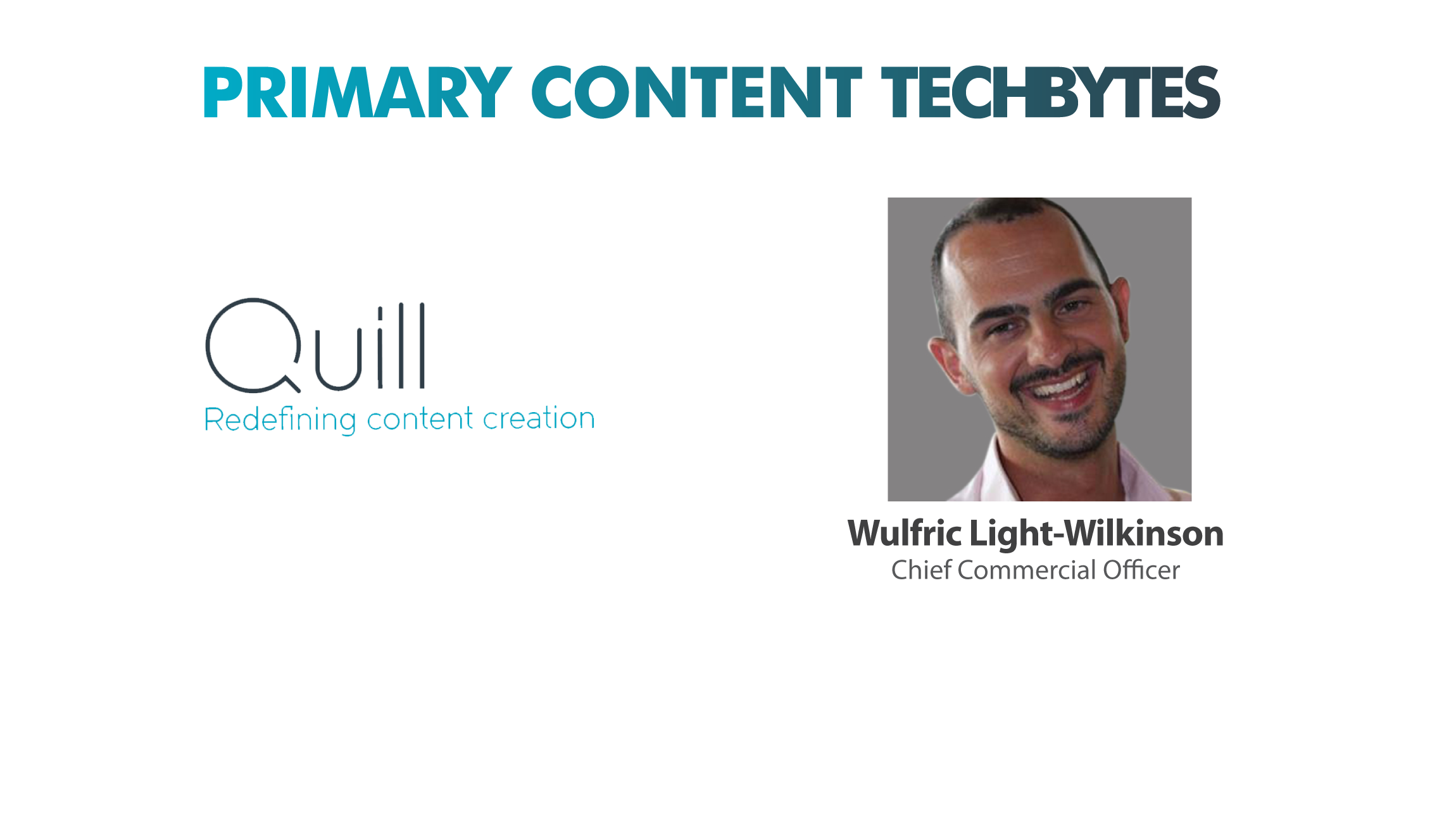Wulfric Light-Wilkinson
CCO Quill
Quill is a leader in Primary Content production, who with their latest round of investment have raised a total of £10 million. We covered how the investment will fuel development of its proprietary cloud technology platform and further expand its network of freelance content creators and to continue to roll out the Quill Quality Score, an industry standard benchmark for the ecommerce content quality. We caught up with Quill’s CCO, Wulfric Light-Wilkinson, to get his point of view on Primary Content creation and how industries can leverage it.
Html code here! Replace this with any non empty text and that's it.
MTS: What is Primary Content and why is it such an issue for retailers?
Wulfric Light-Wilkinson: Primary Content is the critical pre-purchase information that converts browsers into buyers, helping them to make more informed decisions at the penultimate stage of their purchase journey. Examples include product descriptions, category descriptions, travel destination guides or buying guides and shoppable videos. As Primary Content sits at the end of the purchase funnel it directly influences ROI on all marketing activities further up the funnel. Indeed, high-performing Primary Content improves SEO, conversions, basket size, product return rates and brand reputation.
MTS: Why do retailers and agencies find it so operationally challenging to produce Primary Content?
Wulfric Light-Wilkinson: Primary Content typically needs to be produced in very high volumes. If you have thousands of products you need thousands of product descriptions, often with short lifecycles requiring regular updates to the content. If you operate internationally the problem multiplies.
Creating high-quality content at speed and scale is a significant operational challenge. While in-house teams and agencies create fantastic hero content (for advertising campaigns) and small-scale consideration content (e.g. editorial & social content), they often struggle to scale their content production. That’s because they typically lack global content creation teams and enabling technology that eliminates the arduous, error-prone, manual processes involved in content creation. Consequently, Primary Content is often missing or of poor quality, negatively impacting their revenues.
MTS: How does Quill overcome the operational challenges of creating high volumes of Primary Content quickly?
Wulfric Light-Wilkinson: Quill is purpose-built to overcome these challenges. Our unique model combines the flexible costs of a global network of freelance, specialist content creators (the Quill Network) with proprietary cloud technology that eliminates inefficiencies in large scale, multi-language content production (the Quill Cloud). As a result, we can produce high-quality content 75% faster and 40% cheaper than is possible in-house. We also analyze our processes down to the micro-level, inspecting every task to see what can be streamlined or automated; creating small, incremental savings that add up to very significant time and cost savings.
MTS: You’ve developed the Quill Quality Score – how does this work?
Wulfric Light-Wilkinson: The Quill Quality Score is an industry-standard framework for measuring the effectiveness of ecommerce content. The framework is based on consumer research, aggregated performance data from thousands of content pieces created by Quill, and industry expertise. We have performed audits across a wide range of ecommerce sites using the Quill Quality Score, revealing some surprising trends across various industries. For example, only 29% of online clothing retailers describe how an item fits, even though 98% of consumers consider it important to a purchase.
MTS: What are the big changes you see occurring in the industry and what effect do you see this having?
Wulfric Light-Wilkinson: Conversational commerce is a big topic in the industry at present. As voice-controlled smart speakers like Amazon Alexa and Google Home make their way into our households, the way we shop online is evolving from searching on Google or Amazon to interacting verbally through an AI assistant. This will fundamentally affect how marketers can reach consumers because the consumer journey will look very different in the next 5-10 years.
MTS: What benefits do you envisage AI having in the marketing industry?
Wulfric Light-Wilkinson: Digital transformation is set to have a massive impact on the marketing industry and artificially intelligent tech will empower businesses across the board. Despite the hype, I don’t think it will leave people out of work but is more likely to result in a ‘humans in the loop’ scenario where technology makes us more informed, efficient and intelligent than ever before. People will have more time to do the interesting jobs as the mundane tasks will be fully automated. We’re entering a fascinating age for business and the traditional models of how we work are set to change radically within the coming years.
MTS: Thanks for chatting with us, Wulfric.
Stay tuned for more insights on marketing technologies. To participate in our Tech Bytes program, email us at news@martechseries-67ee47.ingress-bonde.easywp.com











